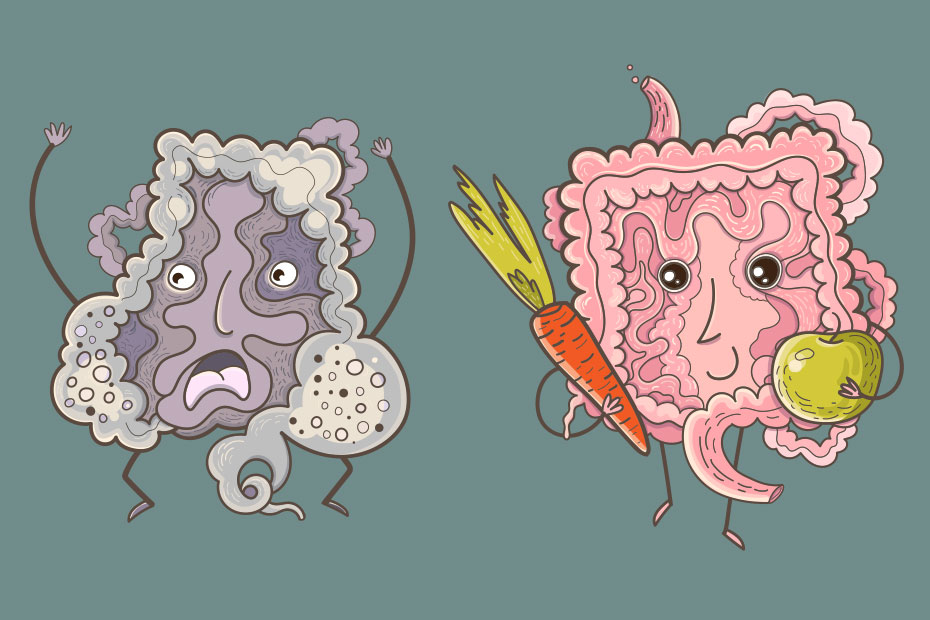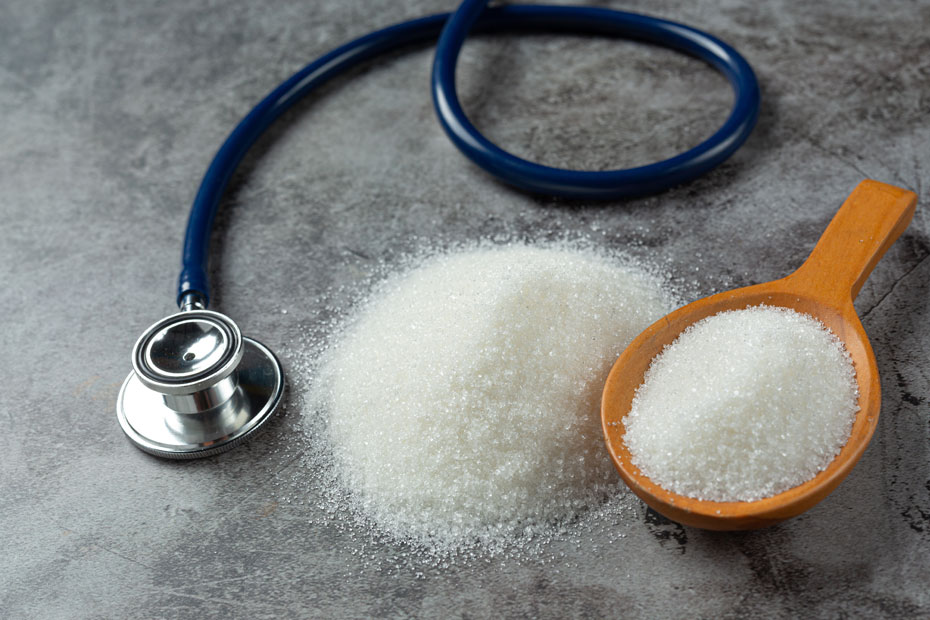
How can I boost my immune system ?
18 January 2021
How to cleanse the intestines?
1 February 2021According to the World Health Organization (WHO), the dose of sugar consumed should not exceed 6 teaspoons per day. Eating too much sugar causes hyperglycaemia, which is the source of many diseases such as cardiovascular disease, problems with the retina, kidneys, nerves, obesity and diabetes. Do you want to be careful with your sugar intake?
What are the signs of excess sugar in the body ?
1. A big desire to eat sugar

The common belief that a craving for sugar, sweets or other sweet products is synonymous with a lack is false. This is not necessarily the case, because sugar is addictive. Just like drugs, it also causes addictive effects. This is due to the production of dopamine, the pleasure hormone that increases the craving for sweets. So like any addiction, the body tolerates it as you use it. The more you eat, the more you crave.
However, it should be pointed out that it is mainly processed sugars such as glucose, fructose or carbohydrates that are the most addictive. Slow sugars, which come from cereals or legumes, are essential for the proper functioning of our body. It is above all the added sugar that is the most harmful. Of course, if you want to reduce your sugar consumption, you must eat less sugar, prefer sugar-free dishes and above all resist your cravings for sweets.
2. An obvious lack of energy

Generally, a person should be dynamic and in better shape after eating. However, if you feel tired right after a meal, this may be due to high blood sugar levels. Drinking sweetened drinks or added sugars in your coffee regularly increases the amount of free sugars in your body.
Orexins, which are chains of amino acids in the brain, are the most affected when your lack of energy is due to over-consumption of sugar. In fact, this neuropeptide is responsible for your sleeping and waking cycle. It acts according to the level of glucose and sugar in your body. If you then become hyperglycemic, the signals sent to the orexins can be distorted. To enable the orexins to receive the right signals, you should avoid sugar or any type of sugar.
3. Progressive weight gain

Have you noticed a slight weight gain lately? You need to look at your sugar intake. It may be due to something else, but it may also be of glycemic origin. You may be wondering what the relationship between sugar and weight gain is? Eating too much of a food that is too sweet does indeed lead to obesity.
Why? Because even though the body burns the sugar to transform it into energy, if there is an excess, it stores it for reuse when it needs it again. However, to keep it well, the body turns it into fat. So if you don’t stop sweetening your fruit juices, eating biscuits, jam, drinks containing cane sugar or other sweet foods, you store more and more calories and gain fat mass.
It is not for nothing that health professionals advise people who are on a diet to replace table sugar or to eat less of it. However, it is always advisable to make an appointment with a professional before starting a diet. If you are unable to reduce your cravings for sugar, you may be advised to take insulin.
4. Insensitivity to the taste of sugar
A sweet drink you thought was normal? White sugar lumps more than necessary in your hot drinks? This means that the amount of sugar in your body is very high.
Some British researchers have even shown that people who are overweight are less sensitive to the taste of sugar compared to people of normal weight. In the same study, they encouraged healthy people to drink soft drinks at least twice a day. After a few weeks, these people are no longer as sensitive to the taste of sugar.
However, if you no longer feel the taste of sugar, it means that you will consume even more. Then you are only increasing the amount of sugar circulating in your blood. The best way to get your sensitivity back is to consume less dietary sugar. Stop eating foods high in fast sugars, they are not good for your health!
5. Inexplicable mood swings

Since sugar is addictive, you may be prone to mood swings when you are craving it. Of course, you may not feel that this is due to a craving for sugar, but you feel better directly when you eat a sugar cube or eat pastries, sweet industrial products or sweets.
If you have reached this state, you should keep an eye on your blood sugar level, as it is already above normal. You may not feel bad about this, but those around you may be suffering from your mood swings. Of course, at this stage, you may need professional monitoring. If you are under pressure, avoid eating sugar and any other food with a high glycemic index. This can accelerate your mood swings and raise your blood sugar levels.
However, it is important to note that eating refined sugar is not the only cause of mood swings. This is why it is always a good idea to consult a counsellor when you feel a change in your behaviour. This is important so that you can rectify your eating habits in the best possible way.
How to stop or reduce sugar consumption?
Start by reviewing your food list, cross out all fast sugars and detect and remove foods with hidden sugars. If you can’t remove sugar, choose slow sugars, complex sugars and natural sugars. Eat plain yoghurt, drink fruit juice and coffee without sugar. Make sure you have as little sugar as possible in the food you swallow. You will eventually get used to a sugar-free diet.
Identifying Excess Sugar in the Body: Signs and Solutions
Having too much sugar in the body can manifest through various symptoms such as constant fatigue, increased sugar cravings, concentration difficulties, weight gain, and skin problems. At DDG Clinic in Brussels, we help you recognize these signals and adjust your diet to reduce the risks associated with high blood sugar. Specific tests can also be performed to assess your sugar level.





